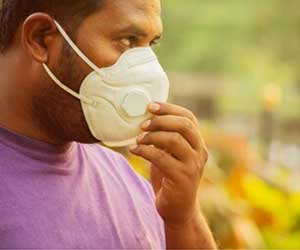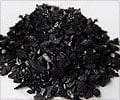Face masks do not increase carbon dioxide poisoning, and they are key to preventing COVID-19 infection, reports a new study.

‘During the COVID-19 pandemic, the wearing of face masks has become a highly political problem, with some individuals falsely claiming that wearing face masks may be putting people's health at risk.
’





The study assessed problems linked to changes in oxygen and carbon dioxide levels in healthy individuals and those with chronic obstructive pulmonary disease (COPD) before and while using surgical masks.According to the experts, people with COPD "must work harder to breathe, which could lead to shortness of breath or feeling tired."
The effects are minimum at most even in people with very severe lung impairment," stated Michael Campos, the study's co-author.
The feeling of breathlessness experienced by some healthy people while wearing masks is not synonymous with alterations in gas exchange. It likely happens from restriction of air flow with the mask in particular when higher ventilation is required (on exertion).
The solution is to slow down or remove the face mask if one is at a safe distance from other people.
Advertisement












